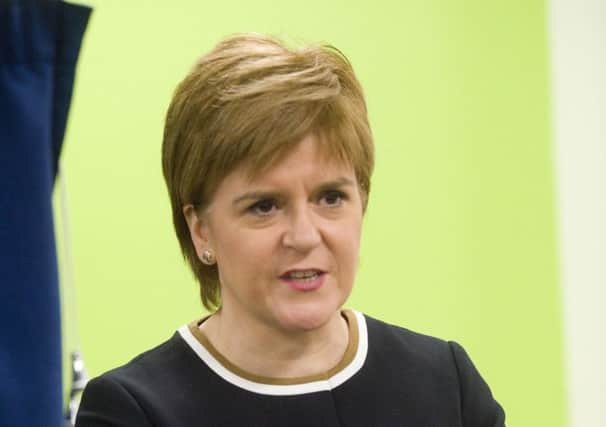Wildcat indyref2 would be lawful, say experts


Constitutional experts say there is a “plausible argument” to be made that a repeat of the 2014 poll could be staged by the Scottish Parliament, despite the constitution being reserved to Westminster. But if Scots voted Yes under such a scenario, the Scottish Parliament would not then have the power to declare independence.
Sturgeon is to make an announcement in the coming weeks on her plans to hold a second referendum. The Prime Minister has made it clear the UK government will not grant a Section 30 order from Westminster which would transfer authority to Holyrood. But experts have told Scotland on Sunday this may not be necessary.
Advertisement
Hide AdAdvertisement
Hide AdAileen McHarg, a Professor of Public Law at Strathclyde University said the position on Holyrood staging its own vote is “genuinely unclear”.
“Quite a lot of people are saying it’s definitely unlawful. I think those people are overstating their case because there is a plausible argument to be made that it is lawful, but there is a plausible argument that it’s not.”
The Scotland Act which brought about the creation of the Scottish Parliament 20 years ago set out the areas which were reserved to Westminster. The ability to stage referendums is not listed among them. The debate hinges on the impact this has on the Union.
In a legal sense, both the Brexit vote and 2104 Scottish referendum were only “advisory”. So simply asking the question of Scots may not be seen as affecting the Union.
“Can we distinguish it as something that would directly affect the Union?” said McHarg. “That’s the point on which there is no clarity and it can only really be resolved by the courts.”
The Edinburgh Agreement signed by Alex Salmond and David Cameron in 2014 was seen as the “gold standard” of staging referendums in the UK and Sturgeon has said she would want to secure this again.
Dr Elisenda Casanas Adam of Edinburgh University, added: “The question of whether the Scottish Parliament would have competence to legislate for an independence referendum was left open. It was left unresolved because they reached an agreement.”
She added: “I would say that there is still an argument to be made that the Scottish Parliament would be competent to legislate for the referendum. Obviously then, if independence did come out victorious in the referendum you would need legislation of the UK Parliament to provide for that. But as for the referendum itself, that question is still open.”
Advertisement
Hide AdAdvertisement
Hide AdScotland differs from Wales and Northern Ireland in this area, according to Ewan Smith, a lecturer and constitutional law expert at Oxford University. The legislation which brought about the devolved assemblies in Stormont and Cardiff saw their abilities to hold polls “restricted in law, meaning votes such as independence referendums could not be staged”.
But Smith said: “There’s no such provision in the Scotland Act. The logic of the Scotland Act is unless something is reserved, it’s devolved.”
But another constitutional law expert, Alan Trench, who runs the Devolution Matters website, insists a repeat of the last referendum would be outwith Holyrood’s competence. “The parliament simply has no power to legislate for them,” he said.